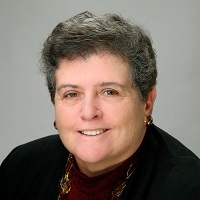What’s the Key to a Secure Retirement?
The answer is long-term planning, but if you, like so many other retirees and others approaching retirement, have planning gaps, here’s what you can do.


Profit and prosper with the best of Kiplinger's advice on investing, taxes, retirement, personal finance and much more. Delivered daily. Enter your email in the box and click Sign Me Up.
You are now subscribed
Your newsletter sign-up was successful
Want to add more newsletters?

Delivered daily
Kiplinger Today
Profit and prosper with the best of Kiplinger's advice on investing, taxes, retirement, personal finance and much more delivered daily. Smart money moves start here.

Sent five days a week
Kiplinger A Step Ahead
Get practical help to make better financial decisions in your everyday life, from spending to savings on top deals.

Delivered daily
Kiplinger Closing Bell
Get today's biggest financial and investing headlines delivered to your inbox every day the U.S. stock market is open.

Sent twice a week
Kiplinger Adviser Intel
Financial pros across the country share best practices and fresh tactics to preserve and grow your wealth.

Delivered weekly
Kiplinger Tax Tips
Trim your federal and state tax bills with practical tax-planning and tax-cutting strategies.

Sent twice a week
Kiplinger Retirement Tips
Your twice-a-week guide to planning and enjoying a financially secure and richly rewarding retirement

Sent bimonthly.
Kiplinger Adviser Angle
Insights for advisers, wealth managers and other financial professionals.

Sent twice a week
Kiplinger Investing Weekly
Your twice-a-week roundup of promising stocks, funds, companies and industries you should consider, ones you should avoid, and why.

Sent weekly for six weeks
Kiplinger Invest for Retirement
Your step-by-step six-part series on how to invest for retirement, from devising a successful strategy to exactly which investments to choose.
By the time a person approaches retirement age, they have enough life experience to know that change and the unexpected are, well, expected. On the other hand, human beings also tend to focus on what’s right in front of them, and retirees and those approaching retirement are no different.
Studies have found that many people at or near retirement age have major gaps in their planning, making them vulnerable to financial problems in retirement.
Misperceptions put retirement nest eggs at risk
A result of gaps in knowledge and failure to think about the long term is a focus on cash flows and expected bills and not on unexpected events. The SOA Research Institute has studied shocks in retirement, and it found that retirees are resilient and able to deal effectively with many of them, but not all.
From just $107.88 $24.99 for Kiplinger Personal Finance
Become a smarter, better informed investor. Subscribe from just $107.88 $24.99, plus get up to 4 Special Issues

Sign up for Kiplinger’s Free Newsletters
Profit and prosper with the best of expert advice on investing, taxes, retirement, personal finance and more - straight to your e-mail.
Profit and prosper with the best of expert advice - straight to your e-mail.
Specifically, the shocks that were more likely to cause them to suffer financial hardships include experiencing a major medical event that requires a long period of care with paid caregivers, relocating to assisted living or a nursing home and getting divorced during retirement. Retirees who experience one of these three events often run out of assets.
Those focusing on an average life expectancy are also vulnerable because an “average” means many people will live beyond it. This, together with short-term planning, means many retirees do not think about very old age.
For people nearing retirement age, there are two important first steps:
- Don’t retire too early. The earlier one retires, the more money is needed to live to the end of retirement, and the earlier one claims Social Security, the lower the monthly benefit will be. Social Security benefits can be claimed as early as age 62, and the monthly amount continues to increase based on claiming age up to age 70. The monthly income at age 70 is about 75% higher than at age 62.
- Plan for the long term. That sounds obvious, but research consistently shows that retirees seem to plan more for the short term, making it unlikely they will anticipate shocks and leaving them unprepared for anything outside their regular expenses.
Don’t forget about long-term risks
Consistently, the SOA Research Institute’s Retirement Risk Surveys have found that the top three risks that concern respondents include inflation, health care costs and long-term care costs. There is less concern about outliving assets, probably because longevity is a long-term risk. For many individuals, Social Security is their biggest retirement income, and that continues for life. However, their assets beyond these benefits may not last as long.
Based on these findings, below is my advice to retirees and near-retirees with significant savings for building a secure retirement for the long term:
- Develop and implement a plan for income payout for life
- Capitalize on the way Social Security works and, for most people, consider later claiming
- Work longer and retire later if there are not enough retirement assets
- See if expenses can be reduced as an option if there are not enough assets
- Don't forget about providing for health care and long-term care risks
Here is additional advice specifically for couples:
- Develop plans that will work for both the retired couple and the surviving individual who will experience retirement on their own
- Consider the joint situation of the couple when claiming Social Security: For some, the best option is late claiming for the higher earner and earlier claiming for the other
The SOA Research Institute’s publication Designing a Monthly Paycheck in Retirement provides information to help the individual plan for an income in retirement. It lays out a range of choices and gives pros and cons.
However, awareness is not the same as action, and many people planning for retirement are aware of this lack in their planning. For example, according to the SOA’s 2021 Risks and Process of Retirement Survey, while more than six in 10 of those nearing retirement and seven in 10 retirees have given at least some thought to how their lives will change throughout retirement, only 16% of those nearing it and 27% of retirees feel prepared for future financial events.
Investing assets
Additionally, it is not clear how well retirees understand market risk, which could leave them ill-prepared.
On the asset side, most individuals do not have the knowledge, skill and patience to independently develop and implement a good investment plan that balances risk and expected return. If funds are invested in an employer-sponsored plan, the benefit sponsor may offer a managed account option or a default option that offers a reasonable balance between risk and return.
But once individuals retire, they are on their own for investing. The individual can learn about investments and then choose funds to implement them. It is prudent to understand how a fund’s administrative costs work before selecting one and use that as a factor in the decision. Some funds may be more cost-effective than others, resulting in greater returns and a better investment.
Individuals can also choose an investment fund that specifically offers a balance that fits their needs. Another option is to put part of their money into an annuity, so it provides lifetime income. Depending on the amount of their resources, some may also find it beneficial to work with a professional financial adviser.
Strategies for those who need more savings
For those individuals who approach retirement age without adequate resources to maintain their standard of living, the situation is much more difficult. The first strategy is often to keep working longer, if that is feasible. The second strategy is to figure out how to reduce spending and expenses during retirement and maximize the amount of Social Security income they may receive. In addition, researching what other resources may be available to them is very important.
Some key tips for this group include:
- Be careful how financial assets are used for emergencies and which assets are being tapped. Focus on using assets that do not incur withdrawal costs or have been producing significant returns.
- Housing is the largest item of expense for retirees. See if there is a good way to reduce housing costs. Options may include selling and moving to a less expensive dwelling, taking out a reverse mortgage, renting out a room, moving in with family or sharing housing with others.
- Food banks and federal food assistance are possible routes to help food-insecure households.
- Medicare Advantage plans may offer health care at a lower cost, but they limit provider access, and they may limit some kinds of care.
- For very low-income retirees, Medicaid can pay for part of their health care, and housing subsidies may be available.
For more information on planning for a secure retirement, visit the SOA’s Aging and Retirement Strategic Research program’s landing page.
Related Content
- Nervously Nearing Retirement? Four Do’s, Four Don’ts and One Never
- Four Tips to Help You Conquer the Retirement Mountain
- Financial Planning in Retirement: Seeing All the Angles
- Glass-Half-Empty Retirement Outlook? Here’s Some Advice
- Nervous About Retirement? Ask Yourself These Five Questions
Profit and prosper with the best of Kiplinger's advice on investing, taxes, retirement, personal finance and much more. Delivered daily. Enter your email in the box and click Sign Me Up.

Anna M. Rappaport, FSA, MAAA, is a past president of the Society of Actuaries and chairs its Committee on Post-Retirement Needs and Risks. Anna completed 60 years as a Fellow of the Society of Actuaries in 2023. She has written for several publications and serves on the board of the Women’s Institute for a Secure Retirement (WISER) and the advisory board of the Pension Research Council. She previously served on several government advisory groups.
-
 Quiz: Do You Know How to Avoid the "Medigap Trap?"
Quiz: Do You Know How to Avoid the "Medigap Trap?"Quiz Test your basic knowledge of the "Medigap Trap" in our quick quiz.
-
 5 Top Tax-Efficient Mutual Funds for Smarter Investing
5 Top Tax-Efficient Mutual Funds for Smarter InvestingMutual funds are many things, but "tax-friendly" usually isn't one of them. These are the exceptions.
-
 AI Sparks Existential Crisis for Software Stocks
AI Sparks Existential Crisis for Software StocksThe Kiplinger Letter Fears that SaaS subscription software could be rendered obsolete by artificial intelligence make investors jittery.
-
 Social Security Break-Even Math Is Helpful, But Don't Let It Dictate When You'll File
Social Security Break-Even Math Is Helpful, But Don't Let It Dictate When You'll FileYour Social Security break-even age tells you how long you'd need to live for delaying to pay off, but shouldn't be the sole basis for deciding when to claim.
-
 I'm an Opportunity Zone Pro: This Is How to Deliver Roth-Like Tax-Free Growth (Without Contribution Limits)
I'm an Opportunity Zone Pro: This Is How to Deliver Roth-Like Tax-Free Growth (Without Contribution Limits)Investors who combine Roth IRAs, the gold standard of tax-free savings, with qualified opportunity funds could enjoy decades of tax-free growth.
-
 One of the Most Powerful Wealth-Building Moves a Woman Can Make: A Midcareer Pivot
One of the Most Powerful Wealth-Building Moves a Woman Can Make: A Midcareer PivotIf it feels like you can't sustain what you're doing for the next 20 years, it's time for an honest look at what's draining you and what energizes you.
-
 I'm a Wealth Adviser Obsessed With Mahjong: Here Are 8 Ways It Can Teach Us How to Manage Our Money
I'm a Wealth Adviser Obsessed With Mahjong: Here Are 8 Ways It Can Teach Us How to Manage Our MoneyThis increasingly popular Chinese game can teach us not only how to help manage our money but also how important it is to connect with other people.
-
 Looking for a Financial Book That Won't Put Your Young Adult to Sleep? This One Makes 'Cents'
Looking for a Financial Book That Won't Put Your Young Adult to Sleep? This One Makes 'Cents'"Wealth Your Way" by Cosmo DeStefano offers a highly accessible guide for young adults and their parents on building wealth through simple, consistent habits.
-
 Global Uncertainty Has Investors Running Scared: This Is How Advisers Can Reassure Them
Global Uncertainty Has Investors Running Scared: This Is How Advisers Can Reassure ThemHow can advisers reassure clients nervous about their plans in an increasingly complex and rapidly changing world? This conversational framework provides the key.
-
 I'm a Real Estate Investing Pro: This Is How to Use 1031 Exchanges to Scale Up Your Real Estate Empire
I'm a Real Estate Investing Pro: This Is How to Use 1031 Exchanges to Scale Up Your Real Estate EmpireSmall rental properties can be excellent investments, but you can use 1031 exchanges to transition to commercial real estate for bigger wealth-building.
-
 Should You Jump on the Roth Conversion Bandwagon? A Financial Adviser Weighs In
Should You Jump on the Roth Conversion Bandwagon? A Financial Adviser Weighs InRoth conversions are all the rage, but what works well for one household can cause financial strain for another. This is what you should consider before moving ahead.